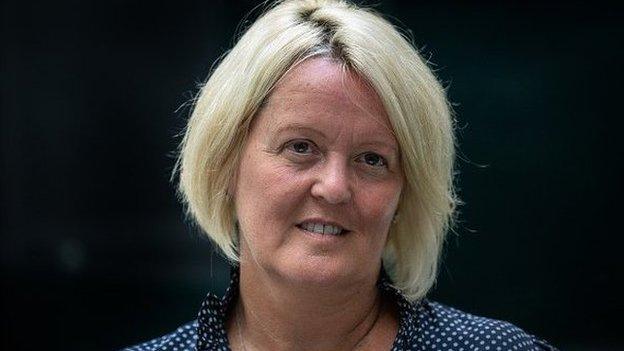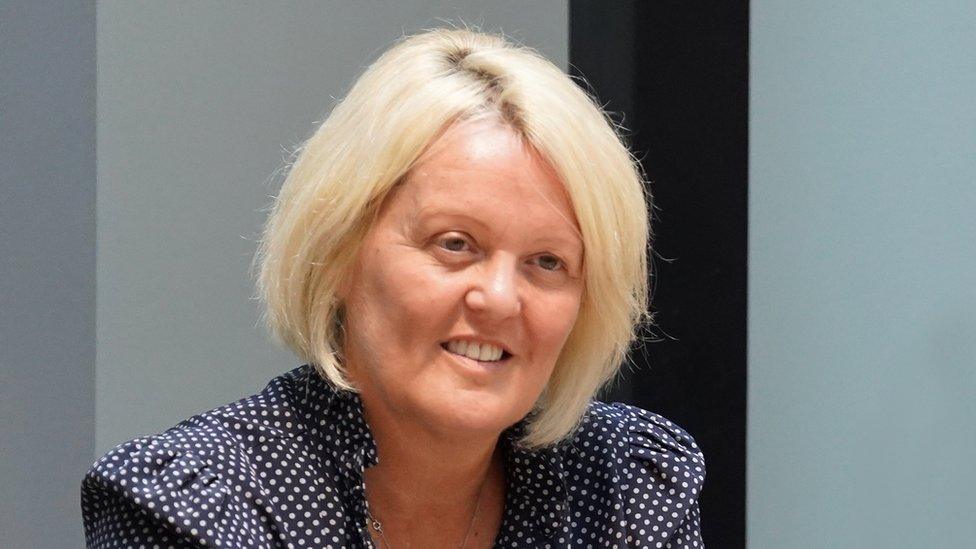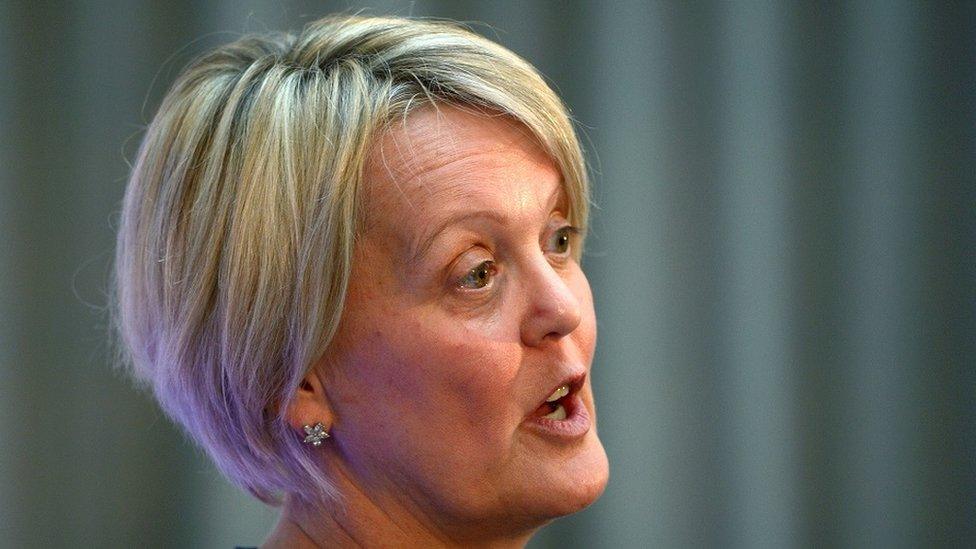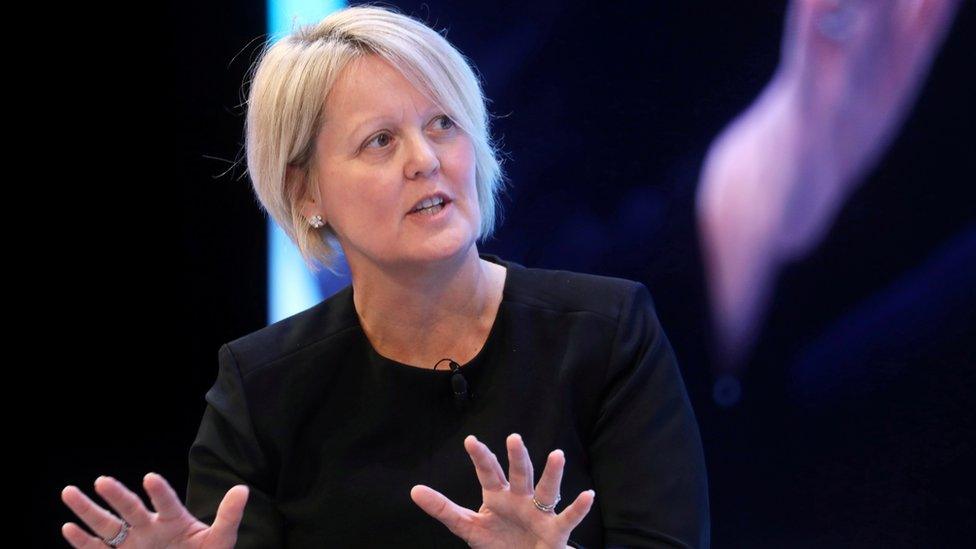Alison Rose: The bank boss brought down by the Nigel Farage row
- Published

When Dame Alison Rose landed the top job at NatWest she became the most powerful woman in UK banking.
In the notoriously male-dominated sector, women at her level are still incredibly rare.
Dame Alison oversaw a bank with about 19 million customers in the UK and 60,000 employees globally.
It didn't happen by accident.
Dame Alison spent some decades climbing the ranks, starting out over 30 years ago as a trainee at the bank after graduating from Durham University.
When she secured the top job in 2019, she carefully cultivated her image and was frequently heard on the airwaves and appeared in print.
In interviews she was typically careful, reciting lines which had clearly been prepared and at times she could sound wooden.
It was part of a media-savvy strategy to be visible and open, but also very careful - she never put a step wrong and never said anything she wasn't supposed to say.
That's why the latest development is so surprising - Dame Alison made what she admits was a "serious error" in speaking about Nigel Farage's relationship with Coutts, the private bank owned by NatWest.
It is out of character and a shock misstep in a career which, until now, has been remarkably flawless.
Danni Hewson, head of financial analysis at stockbroker AJ Bell, said Dame Alison was "massively respected" and her actions had "caught a lot of people by surprise".
"She held her employees to a high standard. She was pushing NatWest to achieve higher standards, to be more inclusive, to deliver more for the customer. And, you know, with one comment, she has undermined years of hard work.
"She has been hugely instrumental in changing the culture of banking and propelling forward the reputation of NatWest from a time when the banking sector was really persona non grata. So, I think it is incredibly surprising that she has been so careless."
When NatWest, then called Royal Bank of Scotland, almost collapsed in the 2008 financial crisis and had to be rescued by a £20bn taxpayer bailout, Dame Alison was integral in rebuilding the bank and its reputation.
In contrast, the then-chief executive Fred Goodwin was blamed for expanding the bank too rapidly and was subsequently stripped of his knighthood.
Dame Alison is one of the few senior bosses to have survived at the bank after the public fallout.
She has also been lauded for her work to boost the number of female entrepreneurs and leaders.
It was this work which helped her be named as a Dame Commander of the British Empire by King Charles III at the start of this year.
As boss at NatWest, she has drawn headlines for changes, such as granting up to a year of leave to new fathers and ending new loans to oil and gas companies.
And she was a relatable role model. The 53-year-old mum-of-two told the Daily Telegraph in 2021 that running NatWest during the pandemic, despite its challenges, "was much easier than managing home schooling" during lockdown.
She called the financial crisis in 2008 a "pretty traumatic period" for the industry.
"There was the experience of watching everything we had been working on change, and the terrible situation that RBS found itself in," she told the Evening Standard in 2016. "That was a pretty emotional and difficult experience."
It's likely that this latest episode will prove more traumatic.
Related topics
- Published26 July 2023

- Published26 July 2023

- Published17 February 2023
